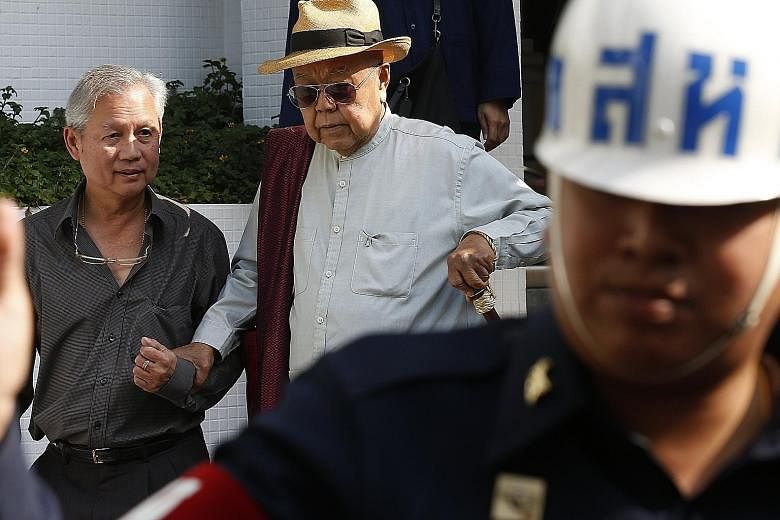BANGKOK • Thailand's military court yesterday dropped the prosecution of an 85-year-old academic who had been accused of royal insult for questioning the truth of a 17th-century elephant-back battle, he and his lawyer said.
Under Thailand's strict lese majeste law against defaming, insulting or threatening the monarchy, Mr Sulak Sivaraksa could have been jailed for up to 15 years if found guilty.
He had questioned during a university seminar in 2014 if a battle had really taken place in which Thai national hero King Naresuan the Great is said to have killed a Burmese prince. King Naresuan ruled from 1590 to 1650.
Thailand's junta has made increasing use of the lese majeste law since seizing power in 2014 and the dismissal of the case before prosecution was a rarity.
Mr Sulak gave thanks to King Maha Vajiralongkorn, who succeeded his revered late father, King Bhumibol Adulyadej, in 2016.
"I think this case was stopped because of the grace of the king. I asked many people for help and no one dared. So I petitioned the king," he told reporters.
His lawyer, Ms Puangtip Boonsanong, said the court had cited lack of evidence as the reason for dropping the case. Neither the court nor the police made any comment.
At least 94 people have been prosecuted for lese majeste and as many as 43 have been sentenced since the 2014 coup.
The lese majeste law does not apply to past or deceased kings but is sometimes loosely interpreted and used to defend the royal establishment. In 2013, the Supreme Court sentenced a man to two years in prison over a comment he made in 2005 about King Mongkut, who reigned from 1851 to 1868.
King Naresuan's elephant battle is highly celebrated in Thai official history and is commemorated each year by the military as the Royal Thai Armed Forces Day.
REUTERS

